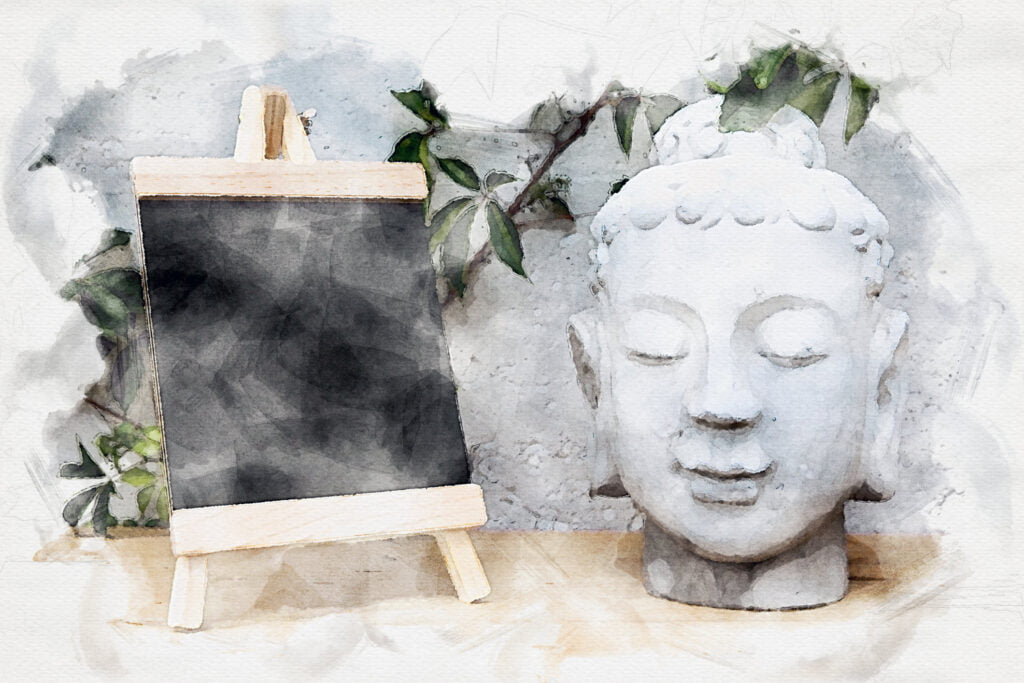The days of personal messages and attention given by masters to individual disciples undergoing preliminary or probationary training are something of the past and have been so for some time. Those who work on astral levels may be under the illusion that they are still favoured by such contact, but in due course they will be disillusioned.
Whereas, until about the end of the previous century, the Hierarchy of masters was able to give individual and personal attention to disciples, because of their fairly limited numbers, the position has now radically changed. Larger numbers of disciples are being trained to expedite humanity’s spiritual progress and, to effect this training on a broader basis, the Hierarchy works through a group system. A master thus communicates his messages to groups by telepathically impressing a particular member who has the required sensitivity. These messages, communicated for the benefit of the group as a whole, will often refer to the individual needs of its members.
Just as professors are not used for teaching schoolchildren, so the Hierarchy cannot have its senior members spend their valuable time and energy on training junior disciples. If the relatively high mental level of the present-day esoteric student is taken into consideration, together with the abundance of literature that is available from which suitable material can be selected to fit every stage of development, then it will be seen that the earlier stages of training can, to a large extent, be self-implemented.
When the student is ready for the next stage, in which guidance and teachings are needed beyond his own capacity, then the help and guidance of an advanced disciple will be made available to him, on either the exoteric or esoteric level, depending on circumstances. It is only after disciples have attained certain minimum spiritual qualifications that they will come under consideration for individual instruction by a master.
The grading of disciples is a relatively simple process. The masters do not need special records, nor do they have to study progress reports for this purpose: They can immediately recognise the stage of development reached by a disciple simply by studying the quality of the light radiated by the worker. When the individual’s aura attains a certain hue and his vibrations reach the required intensity, he will automatically draw the attention of some particular master, who will then submit him to tests to determine whether he has reached the stage that will justify personal attention.
The average student cannot possibly conceive how preoccupied the members of the Hierarchy are in guiding the fortunes of humanity towards its destiny, in accordance with the divine plan. The masters do not have the time, the interest, or any intention of intruding on or interfering with the details of the disciple’s personality life on Earth. All that concerns them is the growth of his inner light and the extent to which this is reflected in the quality of his service.
Disciples who are in touch with the masters will soon find that they will not be subjected to flattery and promises, because nothing is said to feed a disciple’s pride or which might foster self-satisfaction and which might consequently lead to future slackness. When a disciple’s life and deeds produce a growing radiating light, such progress will be amply rewarded by increased opportunities for service being put in his way, together with the needed capacities to fulfil the task satisfactorily.
In the life of a disciple, periods will possibly come when he seems to have lost all contact with his master and when it is as if all relations have been severed. Should this happen, the disciple must realise that such severance is temporary and does not originate from the master’s side. Before a disciple is admitted into a master’s group, he will already have been kept under observation for a considerable time and the master will be well aware of all his qualities – both his virtues and shortcomings. So when he is finally accepted, the master’s decision will be irrevocable as far as his own standpoint is concerned and this arrangement could then only be broken by the disciple.
The masters do not want adoration or veneration form anyone; they desire disciples to be impersonal in all their dealings, as it is an attitude of impersonality that will lead to spiritual love and understanding. What the masters are looking for is intelligent dedication to the needs of humanity.
The same attitude of impersonality is also maintained by the masters themselves in their dealings with their disciples and it certainly does not form part of their objectives to make their pupils self-satisfied with their status or activities by undue complimentary words.
A master will keep a close watch on the waxing and waning of his disciple’s inner light and on the vibrations that are radiated; it is then for him to make suggestions for improvement of his pupil’s attitudes and life expressions and to point out where personality adjustments could be effected to lead to greater freedom from personality dominance and to an intensification of the spiritual life, evidenced by acts of service. If, in this process of impersonal admonishment, the student should take offence and show resentment, it is but an indication that such a student is as yet too deeply immersed in personality reactions and is therefore not yet ready for more advanced work. Disciples should thus learn to work from soul or spiritual focus and not from personality focus.
Disciples must learn to stand on their own feet, to use their own discretion, not to lean too heavily on the master’s support and not to distract his attention unduly from his own pressing activities; the masters are fully occupied with the many aspects of the constantly changing world picture and with the guiding of the minds of world leaders who must unconsciously be steered to conform to the greater plan and purpose. The more advanced the disciple and the closer he approaches to the master, the deeper will be his understanding of the position and the greater his endeavour to fulfil his own duties to the best of his ability and to relieve the master of as much of his minor duties as the disciple’s aptitudes and circumstances will allow.
Previously in the East, when the disciple worked under direct instructions of a master, implicit obedience was exacted and the master literally assumed full responsibility for the destiny of his pupil. Since then the position has, however, been radically changed: The disciple works from the mental level and with his free actions. Today it is the responsibility of the masters to offer opportunities and the more profound versions of the truth – and nothing more. In these circumstances no teacher exacts blind obedience. What a master will expect, however, if the disciple wishes to work under his guidance, is for his instructions to be accurately followed, of the disciple’s own free will, or otherwise such collaboration becomes futile.
During their early stages of approach to the masters, disciples will find that the masters are extremely busy and that they are not readily accessible to attend to trifling matters relating to the personality – problems which the disciple should be able to solve through his own efforts and with the light supplied by his own soul. Older and tried disciples have far more ready access to their masters, but they pride themselves on not wasting their time with trivial affairs and will only go to them for major decisions concerning their service activities on behalf of others.
It should be thoroughly understood by the student that the masters are not concerned with the personality aspects of individuals. Their concern is to find channels through whom they can work and direct their energies for the benefit of humanity as a whole. A disciple will therefore enter a master’s group in the first instance because he has already acquired the capacity to render some service and not because he is to receive some special training for self-advancement. But it stands to reason that in the course of his service he will gain experience and thus, gradually, he will be shaped into an ever more effective instrument in the hands of the master.
There are instances where disciples receive specific training, but again this will only be done in order better to qualify them for the expression of some aspect of the greater plan for humanity.
A disciple is weighed by the motives which impel him. A master is not impressed by the worker’s status amongst men, or the influence he wields in worldly circles by means of qualities of the personality, but rather by the motives which prompt his activities. It is only when selfless love, understanding and goodwill arouse him to altruistic service, that he is recognised and brought to the attention of the master.
Yet service is not something to be pursued by the disciple: It is a soul instinct and unrestrainable urge of the soul that has to be expressed.
“The ‘Bailey books’ are not for the casual or frivolous reader, but require focused attention and serious study.” Bridges – Ancient Wisdom Revealed by Aart Jurriaanse
Since ancient times the flame of wisdom has been kept burning and mankind has never been left without spiritual direction. In the 20th century one of the torches of the Ancient Wisdom was handed to Alice A Bailey, whose books stand out for their quality and depth. In ‘Bridges’, Aart Jurriaanse offers these Ancient Wisdom teachings in a clear and accessible way.

This article was compiled from Aart Jurriaanse’s book, with permission of the publishers, Sun Centre School of Esoteric Philosophy, in Somerset West. Please note that wherever the terms ‘man’ or ‘he’ are used, these include both genders. Published by Odyssey Magazine June/July 1994.

